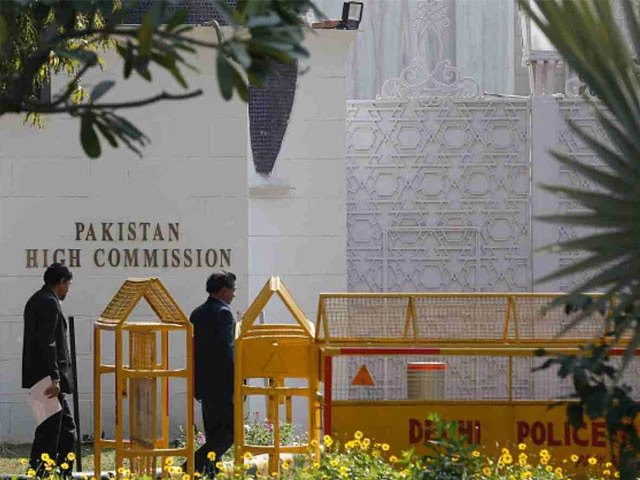India orders another Pakistani diplomat to leave country
A demarche was also delivered to the Charge d’Affaires of the Pakistan High Commission in New Delhi.

The Indian government declared another Pakistani official posted at the Pakistan High Commission in New Delhi 'persona non grata' for engaging in activities inconsistent with his official status.
A similar move was taken by the Indian government a week earlier, when it accused a Pakistani diplomat posted at the Pakistan High Commission in New Delhi of “activities not in keeping with his official status” and declared him 'persona non grata'.
Press Release: Pakistani official declared persona non grata
— Randhir Jaiswal (@MEAIndia) May 21, 2025
🔗 https://t.co/jN387etg6w
According to a statement issued on Wednesday from the Ministry of External Affairs India, Pakistani official has been given 24 hours to leave country.
A demarche was also delivered to the Charge d’Affaires of the Pakistan High Commission, strictly instructing him to ensure that “none of the Pakistani diplomats or officials in India misuse their privileges and status in any manner.”
In response to India’s action a week earlier, Pakistan also declared a staff member of the Indian High Commission in Islamabad 'persona non grata' in a tit-for-tat move, directing the diplomat to leave the country within 24 hours.
According to the Ministry of Foreign Affairs, the Indian official was found engaging in “activities incompatible with his privileged status,” prompting Pakistan’s decision.
Read More: Pakistan orders Indian diplomat to leave within 24 hours in reciprocal move
The recent strain in India-Pakistan diplomatic relations began after the Pahalgam attack in Indian Illegally Occupied Jammu and Kashmir (IIOJK), which led to a military confrontation between the nuclear-armed neighbours.
After the Pahalgam attack, India immediately blamed Pakistan for the incident. However, Pakistan categorically rejected the accusation.
In response, India undertook a series of hostile actions, including suspending the 65-year-old Indus Waters Treaty (IWT), cancelling visas for Pakistani citizens, closing the Wagah-Attari border crossing, ordering the shutdown of the Pakistan High Commission in New Delhi, and reducing diplomatic staff at each other's embassies.
Read More: Pakistan, India agree to uphold ceasefire
Tensions further escalated, when missile strikes hit six cities in Punjab and Azad Jammu and Kashmir, destroying a mosque and killing dozens of civilians, including women, children, and the elderly. In a swift military response, Pakistan’s armed forces shot down Indian warplanes, including three Rafale jets.
The confrontation intensified again in the early hours of May 10, when India targeted several Pakistani airbases with missile strikes. In retaliation, Pakistan launched Operation Bunyanum Marsoos, damaging Indian military installations, including missile storage sites, airbases, and other strategic targets.
On May 10, US President Donald Trump announced that a ceasefire had been reached following intense diplomatic efforts overnight. Minutes later, the agreement was confirmed separately by Foreign Minister Ishaq Dar and the Indian foreign secretary.




















COMMENTS
Comments are moderated and generally will be posted if they are on-topic and not abusive.
For more information, please see our Comments FAQ